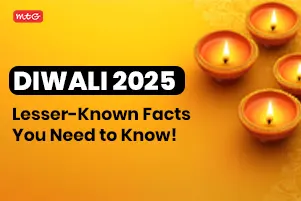
Bohag Bihu, Assam’s New Year festival, began on April 14 and will be celebrated over a period of seven days. The festival of wealth and happiness – Bohag Bihu – is also called Rongali Bihu. The festival is celebrated with utmost pomp and joy by the indigenous people of India’s north-eastern state of Assam. As the major occupation of Assamese people is farming, they celebrate all the main stages of farming that take place throughout the year. Bohag Bihu is one of the three Bihu festivals celebrated in a year. It signifies the commencement of the seeding season. It is generally celebrated in the second week of April every year.
Apart from Bohag Bihu, the other two Bihu festivals are Kati Bihu and Magh Bihu. Kati is the Assamese word for Kartik (Hindi/Sanskrit word meaning the month of October/November) and Magh means January/February. Both the festivals signify their month of celebration as well. The meaning of the word “Rongali Bihu” can be traced to its origin from the Assamese word “Rong” meaning joy in Assamese. The Assamese people celebrate every day of the 7-day festival with fervor and enthusiasm where each day symbolises unique rituals, significance, and customs.
Latest – 7 Stress Management Tips for Students for Healthy Mind!
The Bohag Bihu’s seven days celebration
The first day of Bohag Bihu celebrations is known as Garu Bihu. On this day, there is a unique ritual of honouring cattle. People with their livestock head to the nearby river, where cattle are bathed. Afterwards, they adorn the livestock with garlands along with painting their horns and hooves. Following this, they pray for the cattle’s health and well-being.

The second day of Bohag Bihu is called Manuh Bihu, which begins with the ritual of applying turmeric paste and a purifying bath. On this day, people prepare traditional Assamese cuisines such as Pitha, Murir Laru, Ghila Pitha, Til Laru, and Poka Mithoi. As gestures of goodwill, the delicacies are shared amongst family and friends.

The third day, Guxai Bihu, is aimed at worshipping Isht devta or household deities. People seek their blessings for wealth and happiness.
The fourth day of Bohag Bihu is Taator Bihu, which sheds light on the value of handlooms and craftsmanship, emphasizing the cultural legacy rooted deeply in Assamese society.

The fifth day of Bohag Bihu is called Nangolor Bihu. The day pays tribute to the vital farming tools essential for agricultural wherewithal.
The sixth day of Bohag Bihu is called GharosiaJibar Bihu. On this day, people show their thankfulness towards their livestock, underlining their priceless contribution to rural life.

The seventh day, the final day of Bohag Bihu, is known as Chera Bihu. The day ends on a high note where communities meet and greet each other and extend best wishes.

Have you checked yet? – India’s Biggest Achievements in 2023 from Each Month!
Bohag Bihu celebrations
Bohag Bihu celebration is filled with the harmonious tunes of traditional musical instruments such as pepa, gogona, toka, dhol, and taal. People dance and make merry to the tunes of the music of the instruments. Harvest festivals similar to Bohag Bihu are celebrated all over India during the period such as Baisakhi in Punjab, Puthandu in Tamil Nadu, Vishu in Kerala, and Pohela Baisakh in West Bengal.
While the name of the festival and region may change, the essence of the harvest festival remains the same throughout the country and that’s exactly what unites Indians.
10 Popular Bihu Wishes in Assamese
- বিহুৰ শুভেচ্ছা জনালো। (Bihu’r shubhechcha janalo)
- বিহু উৎসৱৰ শুভেচ্ছা প্ৰদান কৰিলো। (Bihu utsavor shubhechcha pradan korilo)
- বিহু উৎসৱৰ শুভেচ্ছা জনালো। (Bihu utsavor shubhechcha janalo)
- বিহু উৎসৱৰ শুভেচ্ছা প্ৰদান কৰিলো। (Bihu utsavor shubhechcha pradan korilo)
- বিহু উৎসৱৰ শুভেচ্ছা আপোনালোকলৈ। (Bihu utsavor shubhechcha aponalokloi)
- বিহুৰ আনন্দ আৰু শুভেচ্ছা প্ৰেৰণা কৰি। (Bihu’r anondo aru shubhechcha prerona kori)
- বিহু উৎসৱৰ শুভেচ্ছা প্ৰদান কৰিলো। (Bihu utsavor shubhechcha pradan korilo)
- বিহুৰ দিনটোত শুভেচ্ছা আপোনালোকলৈ। (Bihu’r dinot shubhechcha aponalokloi)
- বিহুৰ আনন্দ আৰু শুভেচ্ছা জনালো। (Bihu’r anondo aru shubhechcha janalo)
- বিহুৰ প্ৰীতি আৰু শুভেচ্ছা জনালো। (Bihu’r priti aru shubhechcha janalo)





























